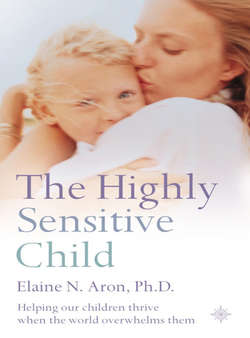Читать книгу The Highly Sensitive Child: Helping our children thrive when the world overwhelms them - Elaine N. Aron, Elaine N. Aron Ph.D. - Страница 28
HSCs and ADD
ОглавлениеI am always asked about the relationship between the trait of sensitivity and attention deficit disorder (ADD). On the surface, there are similarities, and some professionals think many HSCs are misdiagnosed as having ADD. And, I suppose, it is possible for HSCs to have ADD. But the two are not the same at all, and in some ways are, in fact, opposites. For example, there is more blood flow to the right side of the brain in most HSCs, more to the left in those with ADD. Children with ADD probably have very active go-for-it systems and relatively inactive pause-to-check systems.
Why are the two confused? Like children with ADD, HSCs can be easily distracted because they notice so much (although at times they are so deep in thought they notice very little). But ADD is a disorder because it indicates a general lack of adequate “executive functions,” such as decision making, focusing, and reflecting on outcomes. HSCs are usually good at all of this, at least when they are in a calm, familiar environment. For whatever reason (the cause is not known), children with ADD find it very difficult to learn to prioritize, to return their attention to what they are doing once they have glanced outside or know the teacher is not talking to them personally.
Again, HSCs can generally tune out distractions when they want to or must, at least for a while. But it requires mental energy. Thus another reason HSCs can be misdiagnosed as having ADD is because, if the distractions are numerous or prolonged, or they are emotionally upset and thus overstimulated already from within, they may very well become overwhelmed by outer distractions and behave as if agitated or “spacey.” They may tire midway through a long, noisy school day because they have to make a greater effort than others to screen out distractions. Also, if they fear they will perform worse in a given situation because of overarousal and distractions—for example, during an important exam—they very often do become overaroused and therefore notice some distraction they could ordinarily tune out.
Teachers may suggest that an HSC has ADD because there is usually money for treating ADD, so the student who is thus diagnosed will receive special help—as discussed, high sensitivity is a less familiar explanation for unusual behavior. (There is also considerable controversy among those who study temperament about whether much of ADD is simply normal temperament variation that is, like sensitivity, misunderstood. For an interesting cultural discussion of ADD, with much to say to highly sensitive people as well, take a look at Ritalin Nation by Richard DeGrandpre.)
